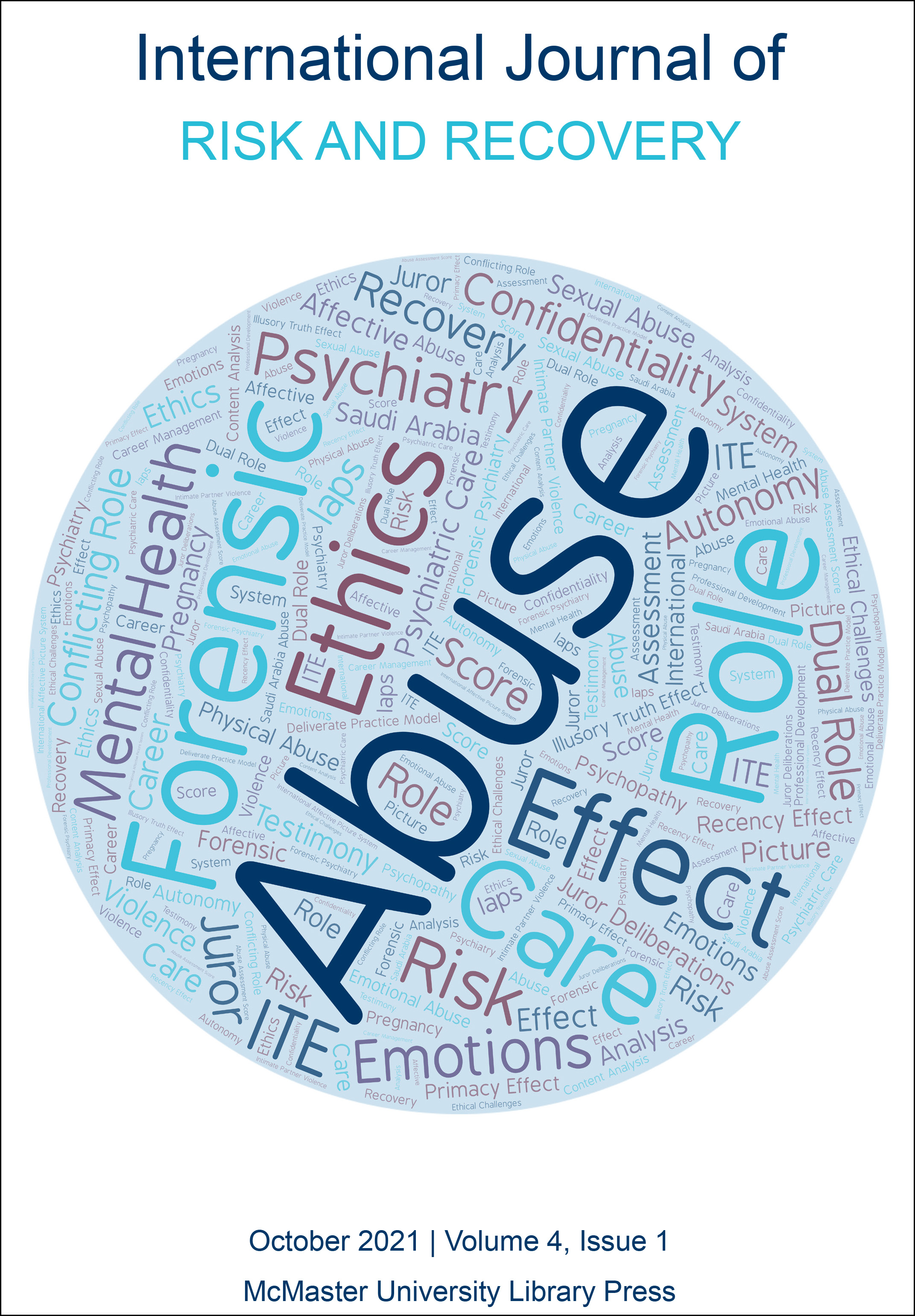The Greats: Learning Strategies of Master Forensic Psychiatrists
DOI :
https://doi.org/10.15173/ijrr.v4i1.3911Mots-clés :
Forensic psychiatry, deliverate practice model, career management, professional developmentRésumé
For forensic psychiatry to thrive as a profession, practitioners need to be committed to intentional, continuous learning and development throughout their careers. However, carving their way through the challenges of practice and finding room to grow can be daunting. Research can help lessen this burden by examining the careers of experienced and skilled practitioners, identifying the factors that influenced their development, and the strategies they used to direct it. To date, little research of this kind has been conducted in forensic psychiatry. In this study, we used the deliberate practice model of elite performance as a heuristic to interpret the accounts of several experienced and distinguished practitioners, revealing and characterizing the influences and activities they identify as having been most important to their development. Semi-structured telephone interviews were conducted with six participants from across North America who started their forensic careers between 1965 and 1980. Transcripts were analyzed using directed content analysis. Participants cited little in the way of highly structured activities designed specifically to improve performance. They instead described using opportunities to learn from real casework and additional knowledge pursuits, as well as using deliberate career management to structure the conditions of their work-based learning. They also stressed the effect of entering forensic practice during a period of increasing interest, demand and investment, which yielded early opportunities to learn through practice. We discuss limitations in the deliberate practice model’s capacity to capture key learning strategies in forensic psychiatry, connections between work-based learning and the discipline’s general historical trajectory, and the role of career management in professional development strategies.
Références
Assarroudi A, Heshmati Nabavi F, Armat MR, Ebadi A, Vaismoradi M. Directed qualitative content analysis: the description and elaboration of its underpinning methods and data analysis process. Journal of Research in Nursing. 2018;23(1):42-55. doi:10.1177/1744987117741667.
Ericsson KA, Krampe RT, Tesch-Romer C. The role of deliberate practice in the acquisition of expert performance. Psychol Rev. 1993;100(3):363-406. doi.org/10.1037/0033-295X.100.3.363
Gardner H. Why would anyone become an expert? Am Psychol. 1995;50(9):802-803. doi.org/10.1037/0003-066X.50.9.802
Macnamara BN, Hambrick DZ, Oswald FL. Deliberate practice and performance in music, games, sports, education, and professions: a meta-analysis. Psychol Sci. 2014;25(8):1608-1618. doi: 10.1177/0956797614535810
Berliner DC. Learning about and learning from expert teachers. International Journal of Educational Research. 2001;35(5):463-482.
van de Wiel MW, Van den Bossche P, Janssen S, Jossberger H. Exploring deliberate practice in medicine: How do physicians learn in the workplace? Adv Health Sci Educ Theory Pract. 2001 Mar;16(1):81-95. doi: 10.1007/s10459-010-9246-3
Glancy GD. The case for progress in forensic psychiatry. J Am Acad Psychiatry Law. 2020 Mar;48(1),7-11. doi: 10.29158/JAAPL.003908-20
Booth B, Chatterjee S, Watts J, Glancy G. Towards a new model of training in Canadian forensic psychiatry. J Am Acad Psychiatry Law 49:In Press, 2021. DOI:10.29158/JAAPL.200112-20.
Téléchargements
Publié-e
Comment citer
Numéro
Rubrique
Licence
(c) Tous droits réservés Daniel Miller, Graham Glancy 2021

Cette œuvre est sous licence Creative Commons Attribution 3.0 non transposé.
Copyright Notice
Authors who publish with this journal agree to the following terms:
- Authors retain copyright of their work and grant the International Journal of Risk and Recovery the right of first publication with the work simultaneously licensed under a Creative Commons Attribution License. This allows others to share the work with an acknowledgement of the work’s authorship and initial publication in this journal.
- Authors are able to enter into separate, additional contractual arrangements for the non-exclusive distribution of the journal’s published version of the work (e.g., post it to an institutional repository or publish it in a book) with an acknowledgement of its initial publication in this journal.
- Authors are permitted and encouraged to post their work online (e.g., in institutional repositories or on their websites) before and during the submission process as it can lead to productive exchanges, as well as earlier and greater citation of published work. (See The Effect of Open Access.)

